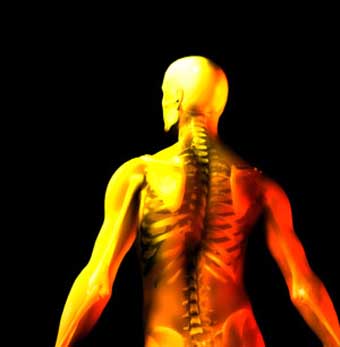INFLAMMATION: CAUSES AND REMEDIES
Supplements against inflammation

The inflammation is a natural defense mechanism of our body, which is a protective response as a result of the harmful effects of physical, chemical and biological.
The inflammation can be local, triggered by injury or by external aggression (a wound, trauma, burn, infection ...) against a tissue or an organ. Other times, the inflammation is generalized, it's interesting that the whole organism. This is the case of autoimmune diseases with a base such as psoriasis, arthritis, multiple sclerosis and systemic lupus erythematosus.
The objective of the protective response is the elimination of the cause of the damage cell or tissue. Inflammation serves, therefore, to destroy, dilute and confine the offending agent, but at the same time sets in motion a series of mechanisms that promote the repair or replacement of damaged tissue.
SYMPTOMS INFLAMMATION
The most important symptoms of local inflammation are the calor (increase in local temperature due to increased vascularity), tumor (swelling determined by the formation of exudate), rubor (redness bound active hyperemia), pain (soreness caused by the compression and intense stimulation of the sensory endings by the agent and inflammatory exudate components) and functio laesa (functional impairment of the affected area).
Systemic inflammation may be associated with a more nuanced and general malaise, similar to that of a mild flu, and / or one or more specific symptoms related to the underlying disease.
CAUSES INFLAMMATION
In addition to injuries of different types and from external aggression, the inflammation may be induced by the presence of substances produced by the body in tissues that normally should not contain them.
Two examples of this type are the accumulation of uric acid in the joints affected by gout or the formation of atherosclerotic plaques along the walls of the arteries, both accompanied by inflammation.
Regardless of the cause, all the inflammatory phenomena are triggered by an increase in the production of substances called prostaglandins determined by the activation of enzymes known as cyclooxygenase 1 and 2 (Cox 1 and 2).
The anti-inflammatory drugs act by inhibiting the activity of these enzymes and thereby blocking the base the series of reactions that lead to inflammation.
CONSEQUENCES INFLAMMATION
The inflammation resulting from trauma or overuse of a muscle or joint tends to diminish with rest and taking anti-inflammatory drugs, such as aspirin or nonsteroidal anti-inflammatory drugs (NSAIDs). If there is also a wound, the situation may be complicated by a bacterial infection that should be treated with antibiotics.
Joint inflammation associated with chronic rheumatic diseases, such as arthritis and osteoarthritis, if not properly treated, can lead to irreversible degeneration of the joint tissues and bone surfaces.
The persistent systemic inflammation tend to increase the cardiovascular risk, which could cause a serious acute events such as heart attack and stroke.
Oxidative stress on tissues determined by inflammation can also increase the risk of age-related diseases, including cancer.
TREATING INFLAMMATION
When the inflammation is localized and occasionally, for identifiable, the use of drugs such as aspirin or nonsteroidal anti-inflammatory drugs (NSAIDs) for self-medication or prescribed by a doctor is an adequate and effective remedy to relieve the symptoms.
If your symptoms do not improve in a localized inflammation, or even worse within 4-5 days, although the rest of the party and the assumption of common anti-inflammatory medications you should consult your doctor to identify more specific treatments or carry out the necessary investigations.
Localized inflammations that tend to recur or persist for long periods of time and systemic inflammations of different nature must always be subject to the evaluation by the physician.
Supplements against inflammation
